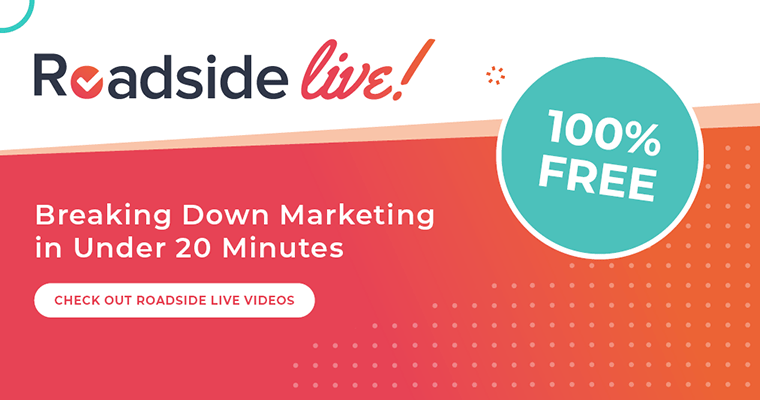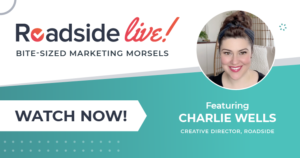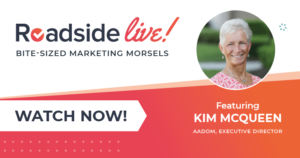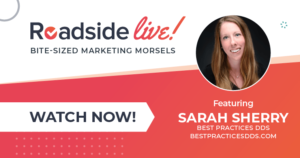Roadside Live: Working with a Consultant and Optimizing Your Hygiene Department
In this Roadside Live video, we chat with … This text opens a new tab …Paula Quinn, RDH, BSDH, Dental Practice Consultant and Clinical Director for … This text opens a new tab …Next Level Consultants to discuss the practical benefits of working with consultants and optimizing your hygiene department. With 30+ years in dentistry, she knows a thing or two about maximizing the potential of your practice!
As Paula and Bridget cover the ins and outs of this topic, you’ll learn:
- What you should look for when hiring a consultant for your dental practice and team
- A few common mistakes to avoid
- How to optimize your hygiene department
- Tips to find and hire hygienists (a major challenge for many practices right now!)
Watch the video above. 👆 Or read the transcript below! 👇
Bridget: Hey everyone. Welcome to another Roadside Live event. I am so excited to have Paula here from Next Level Consultants.
Hi Paula!
Paula: Hi there!
Bridget: So, thanks to Paula’s 30 – 30+! – years in dentistry… When did you start, when you were like 10 years old?
Paula: No, more like five (laughs)
Bridget: Thanks to that incredible experience, to Next Level Consultants, she just brings so much to the board for Next Level. Aside from owning several other businesses, she’s also a practicing dental hygienist and an international educator and speaker for Invisalign and Biolase. Her background in and out of the dental practice gives her a unique skill set that brings incredible value to each of her patients and consulting clients.
So, it’s so great to have you! How are you doing today?
Paula: I’m doing great. I’m in sunny Arizona. Can’t complain!
Bridget: That’s awesome. I love that. I love that “GRIT” in the background; I love your sign in the background that says “GRIT.” I think that’s what everybody needs right now is a little bit of grit in the dental industry.
So let’s jump right in with some questions. I wanted to ask you – you work for a consulting company and sometimes offices can be a little intimidated by consulting companies, or sometimes they even have a bad rap, you know?
I can say that I they’re incredibly powerful. I think that they are incredibly, incredibly powerful. But what things should you consider or look for when when you’re considering hiring a consulting team for a dental practice?
What things should stand out? What questions should they ask? What should they look for?
Paula: Great question. Well I think the first thing is, what they look for and what they should look for are two different stories. I find that, doing this for a while now, I kind of was on the other side of this, and I’ll explain that.
What they tend to look for, when they have a challenge or a weakness in the practice, they go out and they look for someone that can improve that weakness or that challenge. And working for a different company at one point before owning my own, I was that person, where people would seek me out because there was a challenge, maybe in the hygiene department.
And what I uncovered quickly is the challenge isn’t the hygiene department, it’s the practice as a whole.
It can definitely greatly affect the hygiene department or the hygiene department can be part of that challenge or obstacle, but typically there are challenges throughout the entire office in what’s happening.
So an office will look for someone to fill that void. And then I come in. I happen to be well-rounded as you went through all the things that I do, but typically a front office becomes a consultant, or a hygienist becomes a consultant and they do know the entire practice, but their niche is – let’s just use hygiene – their niche is hygiene.
If a hygienist has never sat up front and done billing, or had an EOB in a breakdown, or an insurance question, how effective are they going to be at really improving those systems up front and really walking that walk?
So, the office will be attracted to that. And then the person will try to consult the whole practice, and not be so great at all the different things that are happening, but do the best they can do.
So Michael and I – my partner at Next Level – discovered quickly that one person can’t do it all. Just like a team, one person can’t have all the skills.
So what we’ve done is, he having an MBA and being a business leader and a money person and understanding that whole financial aspect of it, me being a hygienist, clinical, dental assistant, and front office, we also have other office specialists that work for us.
We’re able to cover all of that because when we’re having an issue up front, sure, I can go up there and do my best, but if I send my front office specialist in, she’s going to be the one that really moves the needle and makes a difference, and same in the hygiene department and so on. So we’ve figured the best thing to do is be able to cover it all.
Bridget: There’s so much going on in that one little building. I think we take that for granted. Especially if you’ve never worked in one, it’s not just a matter of like walking in and punching the clock and leaving. The moment you step through the door, you’re a part of this (hopefully) well-oiled machine. And so every role plays into each other’s role.
So, you’re saying to look for a well-rounded company, somebody that can cover all the different facets of that, different departments and things like that.
Paula: Right. And, you know, we usually, as most consultants, we come in and evaluate first, and once we uncover all the different issues that are going on or challenges or things that could be improved, knowing right then and there that, if it’s strictly just a consultant that is focused on hygiene, once all that other stuff is uncovered, hopefully they realize that it’s going to take more than just that to improve the practice.
My partner says it best: When you’re an outsider, not working in a dental practice, he’s like, “Every 10 minutes counts in a practice. It’s like you guys live in these little increments of time.” And so they’re all so very important. And we have to maximize the efficiency of each and every 10 minutes that happens in a practice.
So I think as an office, you just need to be open to, it’s not just one thing in the practice, it’s probably multifaceted and that it’s going to take more than your hygiene department to turn the practice around.
Bridget: And I’m sure when you get in there, you uncover all kinds of things that you didn’t even know about in the beginning. (laughing) Right?
Paula: (laughing) Sometimes we wish we wouldn’t have uncovered them.
Bridget: Right? You start to turn over some stones and you’re like, ‘Oh, look what we found.’
So, I’m sure you’ve heard the saying too, you know, there’s a reason why they call the dental “practice.” It’s constantly changing and no one’s perfect. And you never open up a practice knowing exactly what to do all the time in every situation.
So what are the most common mistakes you see practice owners make?
Paula: So I’m gonna say something that all consultants say (sorry, everyone):
One of the biggest mistakes is not having clear goals and vision.
And if you can imagine, I’m going to use a football team as an example, any team, basketball team, anything: If everyone comes with a skill set, and we all think we’re doing our very best every day.
But if we don’t know the goal, the vision, then I’m going to go over in my department and do my thing and you’re going to go to your department and do your thing.
Like a football team – if we didn’t have that little huddle and decide what the next play is going to be, you know, you might be an amazing kicker, amazing receiver or whatever, but if you don’t know what the quarterback is about to do, then we’re going to have a miss. We may win sometimes, but it’s not going to be consistent.
And my biggest thing is intentionality. I actually wear a thing on my arm that says “intentional” because that’s what I want to be in each and every practice, in my patients’ lives, in my clients’ lives – being intentional with all of that.
So I think having a clear vision and a clear goal set by the leader of the practice is super important.
I also think the other biggest thing is systems and organization. I use an analogy – you can use whatever drink you like; I happen to love wine, so we’re going to use wine.
Bridget: I agree, we’ll roll with it.
Paula: And so if you can imagine, you have this wine all over the table being spilled, right? First of all, that’s just tragic, it hurts. But we’re trying to clean it up – we’re trying to clean up the spilled wine, but then you have someone still sitting there pouring it in the glass and it just keeps overflowing, right?
So I like to use this, we can use this with recare, because that’s always a big issue in a practice. If I’m the one making the recare calls, trying to get the patients back in the door and my hygienist or my front office is allowing patients to leave without their next appointment, it’s just constant spilling, constant cleanup, and we never stop.
And that happens a lot with the ARs going into 30, 60, 90 days – if we constantly are not having a system behind the reports we run, what we do with those reports – how often are we looking at those things to see where are we? What could we have done better today that we didn’t do yesterday? Then we’re going to continue in all parts of the practice to continue to spill that wine.
And you know, it’s just a difficult thing to stop. Does that analogy make sense?
Bridget: Oh yeah, absolutely.
You can have all the binders that you want, and you can have as much “We do it this way, we do it that way,” but you have to sit down, and like, “Okay, step one, step two, step three” … all the way to “Step-this-is-how-we-finish-it,” you know?
You’re right. There’s no sense in having a system unless you’re working on it or constantly refining it. And it’s going to change, because look at how our world has changed, you know? Right. So, yeah, you gotta be able to roll with it now.
Paula: That biggest thing is just like you just said, analyzing that daily.
What did we do yesterday that worked great? What did we do yesterday that didn’t? How do we measure that? How do we change that, improve on that?
Have a system for everything; everyone has that clear vision of how we’re utilizing it, and work together to make it happen.
Bridget: So you’re saying that a lack of that vision – that’s a big mistake. And we preach that too. Even as a marketing company, we always are telling our clients: What are you bringing to the table? What’s your unique value proposition? What is it that is going to set you apart? Let’s market that.
And then, just not having those systems in place that that will help you in those 10 minute increments, I love that. 10 minutes of someone sitting around means that the ball is getting dropped somewhere, right? Even just 10 minutes.
Paula: As a hygienist, you will do anything for 10 minutes! (laughing) Just 10 more minutes!
Bridget: (laughing) “I can get the rest of that calculus, I just need 10 more minutes!”
So speaking of being a hygienist, and you have been for many years, which I can’t believe, you know, again, you started at age five, so you’ve got a lot under your belt. What are some of the things that you teach in your practices to get the most out of their hygiene department?
I mean, the hygiene department is a big deal! And so what are some of the best practices to get the most out of that department?
Paula: Okay. That’s great. Well, I think it always starts with the patient. So I think a lot of dental team members in general, but especially because you’re seeing your hygienist more frequently than anyone else, there are some misses.
What I like to do is find out first what you value most as a patient, because I don’t want to talk in my language. I want to talk in yours.
I want to understand what you want out of your relationship with me, what you value most about your oral health, so that whenever I bring up a conversation, I’m indirectly getting your permission to have that discussion with you based on what you’ve told me that’s important to you.
So if you tell me that – which most people do – that you don’t ever want to be in pain, you just don’t want to get there, especially if you’ve experienced that before. Every conversation I have with you, Bridget, is going to be, you know, “Hey, I’m noticing this. And the last thing I want this to do is get out of control. So I want to have a conversation with you about it now, so that we can take the most conservative approach in getting you back to health.”
So I’ve gotten your permission. I’ve gotten what you value most and how we want to have that discussion. So then everything that comes up during that appointment, I go back to what you told me you want out of this appointment or this really long-term relationship in our practice.
Bridget: Yeah. I love that. You can’t just sit them in the chair and then do your stuff and then get up and leave. And that’s really hard. It, quite frankly, sounds exhausting, you know, to do that with every patient. But think of the value that you add; that patient is going to come back and see you and it’s like, you can’t just really just sit down. You have to look at your previous notes, do a little research and get to know that person.
Paula: Well, and think about it, if you – we teach this all the time, too – if you’re a very detailed person and I’m not, and I don’t get to know you and how you want to have these conversations, you may leave and not schedule. And none of us really know why. You may not even know why as a patient, you just know that there was a disconnect there on the way I delivered what was happening to you.
So that’s what I like to teach first in the hygiene department. Because I’ll have hygienists all the time say, “Oh, I already know, I know how Bridget likes it.” No, no, you don’t unless you’ve asked, right?
She may just be too nice to let you know otherwise, but it’s why she hasn’t scheduled for that perio or that crown for the last five years, you know? So it’s really finding that out. So, I like to teach hygienists that.
The next thing I really like to teach hygienists is their part, like you just said, they’re so incredibly important to the practice. Some will call us the heart of the practice, you know, the life of the practice. And that doesn’t mean that the other team members aren’t as important, but let’s face it, people call for cleanings, right? That’s why they call the practice. You know, if you’re lucky they call from that crown you diagnosed a year ago, but typically you catch them again coming through the hygiene department.
So when they call, 99% of the time, unless they’re in pain, it’s “I want to schedule my cleaning. I want to schedule my checkup.”
Not only that, we’re consistent. We’re the ones they see on a consistent basis. They may or may not have dental treatment that year or at that appointment, but they are going to need to come back for their next preventative procedure.
So really and truly, we are part of the revenue of the practice. We make a big impact of whether the practice goes to that next level or not.
And so I like to teach them that they need a vision as well of their department. And I can take a $200-300 appointment – your cleaning, exam, and x-rays – I can take that to a $6,000 appointment if I listened to you.
I see the recession you have, and I start talking to you about, “Maybe your perio is bite related, you’re not biting together correctly. You’re causing damage. Let me take a scan. Let’s talk about this a little bit more.” All of a sudden they’re interested in Invisalign. Or perhaps even a night guard. So I can take a $200-300 appointment and make it into a $8-6,000 appointment based on me just spending that time and talking to the patient rather than just cleaning you and realizing you have perio. Where is that perio coming from?
So I think it’s really important that we don’t get stuck in our one hour box. “I’ve got to take x-rays. I’ve got to clean this patient’s teeth and I have to write notes and then I have my next appointment and, you know, don’t take away from my hour.”
I have 20 minutes at least with every patient, that their mouth is cranked open, I’m staring over them and I can talk about whatever I want to talk about. And I prefer to keep it – it’s my time to educate. It’s my time to talk to them about what I’m seeing in their mouth. Sure, I talk about my dog and their dog. But that’s the friendly chatter at the beginning.
I have their undivided attention. And I want to make sure that I’m talking about their oral health; that impacts their overall health.
So that’s what I utilize that for. So understanding that you can directly impact the practice in so many ways as a hygienist. You impact… you have a little puppy back there.
Bridget: Oh, yeah! He must’ve heard you.
Paula: You know, they have the ability to not only impact, like I said, the oral health care, the overall care plus the business, the practice and it’s such a big thing.
I love our profession and I always want to even teach us to be even more professionally driven.
People trust us, you know, we are part of the healthcare team. We may not be their doctor, but we are part of that journey in their life because things manifest in the mouth first. The mouth can affect things.
Bridget: I love it. And I love how, I didn’t even think about it the way that you know, you’re saying, they have their mouth cranked open and they can’t do anything about it. So you’re like making eye contact with them practically, right? So they either close their eyes or they open them up and listen to you. So it’s great. I love it.
So I have a bonus question for you if you have any tips for hiring hygienists right now? I mean, that’s one of the things that we’re seeing with our clients is that it’s really hard to find people. So do you have like a hiring tidbit right now? Like just one little morsel?
Paula: Yeah, you know, it’s funny. The market value has definitely gone up. So not only is there possibly quite the shortage in hygienists, the ones that are out there are definitely taking their their pay to the next level.
So it is pretty tricky. I think that at the end of the day, you know, you want to make sure philosophies align. So I think if you can run some type of ad where you stand out, not “we want to treat our patients great”. Cause we all want to treat our patients great. But maybe some things that you have in your practice that make you unique.
Like, you know, I have an iTero scanner. I have obviously, lasers (from a particular company), things that I’m looking for. As a hygienist, you know, I started using lasers 22 years ago. I wouldn’t work in a practice that didn’t have a laser now. That’s just my philosophy.
So what I want to attract is other hygienists that have those same skill sets.
I also think, you know, a sign-on bonus isn’t a bad idea or special incentives if they are scanning for Invisalign during a procedure, if they are perhaps incorporating the laser into that appointment, if they’re enrolling adults in fluoride, there can be little incentives along the way that help them understand that yes, that hour, there’s a little bit more I want you to do, but I’m going to reward you for that as well. Because I believe that really helps with patient care.
Do you have any suggestions? I know you’ve been in the dental field for a really long time.
Bridget: Yeah, no, I think you hit the nail on the head and it’s almost as if you’re marketing to potential team members.
And so it just struck me as like something that you would do for your patient, you know, “Hey, we have Invisalign; this is how it can change your life.” And then, with trying to attract a new team member, “Hey, we have this technology, we want you to use it, and this is how it can enhance your job and the practice as a whole.” So those are really great.
Paula: And your bottom line. it’s a win-win. I want them to be rewarded for going above and beyond as well.
Bridget: Well, this was so amazing. Thank you, Paula. We just loved having you, let’s have you again sometime!
Paula, from Next Level Consultants, everyone!
Please join us again. We love to do this. We love to have guests and, you know, Roadside loves to help educate and get the word out and just have wonderful people on with us! So thanks everyone. Have a great weekend. Thank you, Paula. Have a good weekend.
Paula: It was great talking to you. Have a great day.
Meet the guest
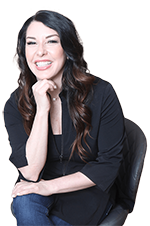 Thanks to her 30+ years in dentistry, Paula brings a tremendous amount of experience to Next Level Consultants.
Thanks to her 30+ years in dentistry, Paula brings a tremendous amount of experience to Next Level Consultants.
Aside from owning several businesses, she is also a practicing dental hygienist and an international educator and speaker for Invisalign and Biolase.
Her background in and out of the dental practice gives her a unique skill set that brings incredible value to each of her patients and consulting clients.

